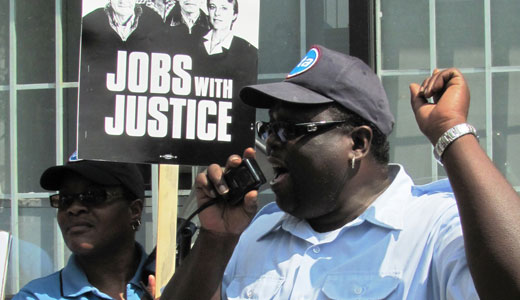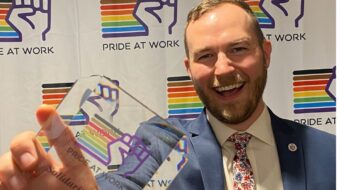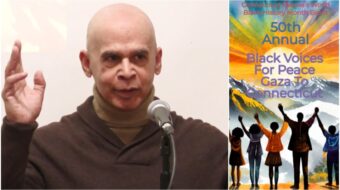
According to recent news reports the number of workers filing for new unemployment benefits dropped to a near four-year low. And with the national unemployment rate at 8.5 percent, many are optimistically expecting renewed consumer confidence as we head into the 2012 elections cycle.
While this is good news, it isn’t sunshine and rainbows for everybody. Millions are still out of work or underemployed, and our economy isn’t anywhere near full capacity.
However as an optimist, it seems to me that there is a light at the end of the tunnel for many people – people who have had to rely on unemployment, their savings, and/or the generosity of family and friends.
Yet, something missing from the recent positive reports is the human dimension, the impact long-term unemployment can have on families as they struggle to pay the utility bills, the bank notes, the doctor’s bills or buy groceries.
In fact, long-term joblessness can have a dramatic and sometimes contradictory impact on people’s lives as they balance their economic reality with their expectations of the American Dream. For some the idea of the American Dream has been shattered, along with their sense of self-worth.
While unemployed some people feel worthless. They feel like it’s their fault, like they’re not working hard enough to find another job. Like there is something wrong with them.
Others feel angry and resentful, even justifiably pissed-off, that they were let go or laid off due to no fault of their own. This anger and resentment can sometimes hinder the search for other employment opportunities.
Furthermore, some people have worked the same job for 15, 20, 25 years and have a hard time believing they have the necessary skills or education to compete in today’s economy, with younger, better educated and less expensive workers – workers with very little “legacy costs” attached with them.
And undoubtedly, it is intimidating and scary to change jobs and/or go back to school.
All of this and so much more weighs on the minds of the unemployed and their families.
For example, my mother was let go almost two years ago. She had worked for the trash company. My stepfather had lost his job a few months before her. He worked as a mechanic for the same trash company.
All of a sudden their lives were turned upside down. She had dedicated 15 years to the company; he had dedicated 25 years. They had a mortgage, two car payments, utility bills, doctors’ bills, credit card debt, etc.
Understandably, they were both pretty angry and hurt by the situation. They had to use their savings and 401k investments to supplement the unemployment benefits. They didn’t have health insurance; the COBRA payments were just too much. Additionally, mom stopped taking her MS medicine since it was too expensive.
And to top things off, as the months turned into nearly two years, frustration and depression made it almost impossible to get excited about the grandkids’ birthday parties, or the holidays with family.
Tension and fear about the future turned into guilt.
In fact, my mother and stepfather blamed themselves for not being able to give my wife and me a wedding present when we got married last May. My mother actually apologized to me, and said, “I wish we could do more.”
Fortunately, after almost two years my stepfather got a job as a welder. His mood changed overnight. He could finally do something productive with his time, feel good about what he was doing and pay the bills.
And just last week, my mother got a job at a union manufacturing plant. She was so excited when she called to tell me. I could hear the pride in her voice, and the weight being lifted off her shoulders.
For many of us, our self-worth is wrapped-up in our ability to work, to pay the bills, “do right,” get by and retire with dignity – the American Dream. Being without a job for months or years can dash all of those expectations, can drag us down and make us feel worthless, make us blame ourselves for the economic situation we didn’t cause, and make us feel guilty as if we did something wrong.
Fortunately, my mother and stepfather have been able to weather the storm – victims of a social-economic system designed to benefit the 1 percent – and eventually, after much heartache, move on to greener pastures.
While many people are finding work as the economy slowly recovers, many more aren’t. Add into the mix a society and economy that perpetuates and reinforces the idea that poverty is a result of laziness and ignorance, and long-term unemployment can have a devastating impact on how people feel about themselves.
Ultimately, we need a full-employment economy, and better laws designed to protect workers and their jobs during times of economic distress. Ultimately, our society can and should do better. Our families deserve better.
Photo: Jobs with Justice // CC 2.0












Comments